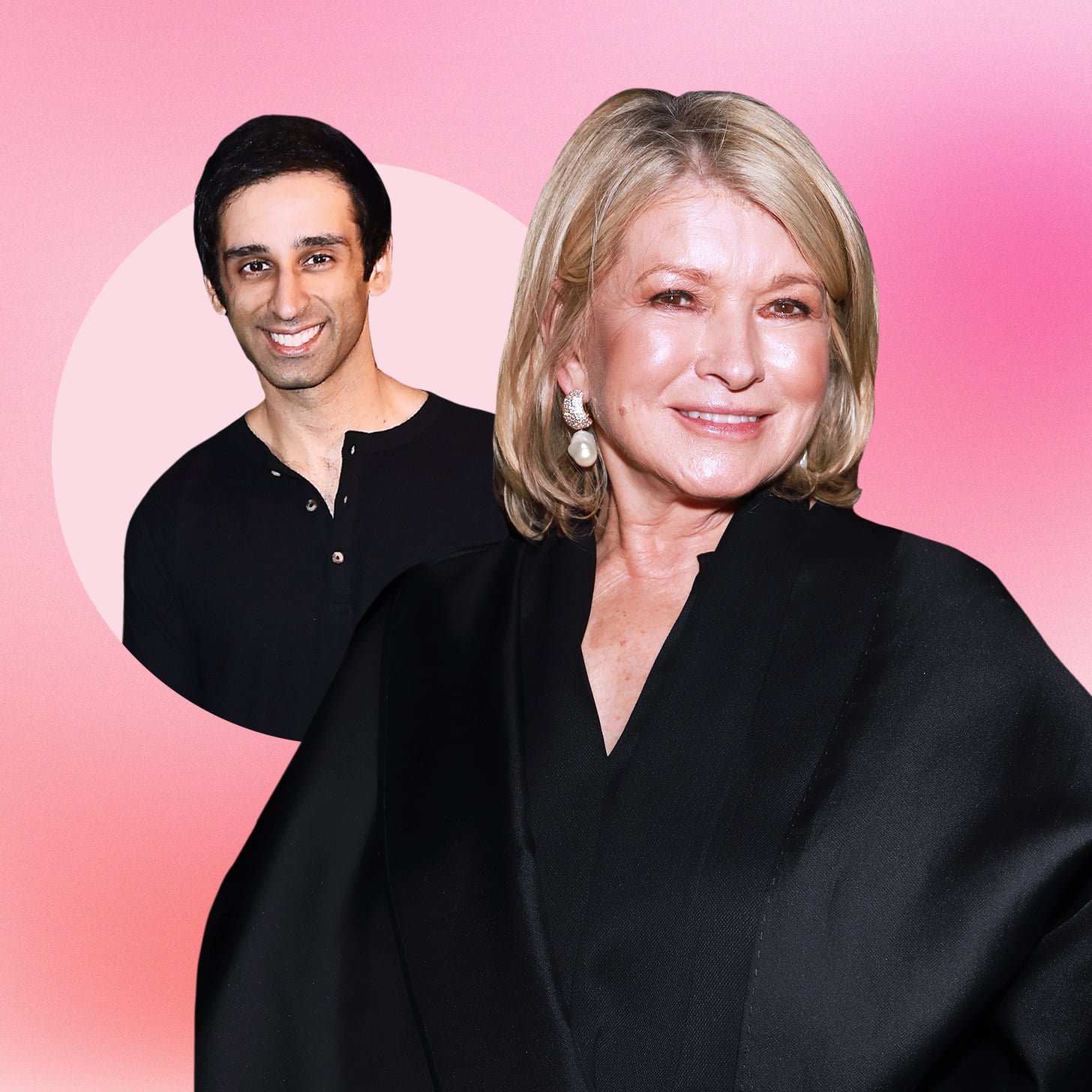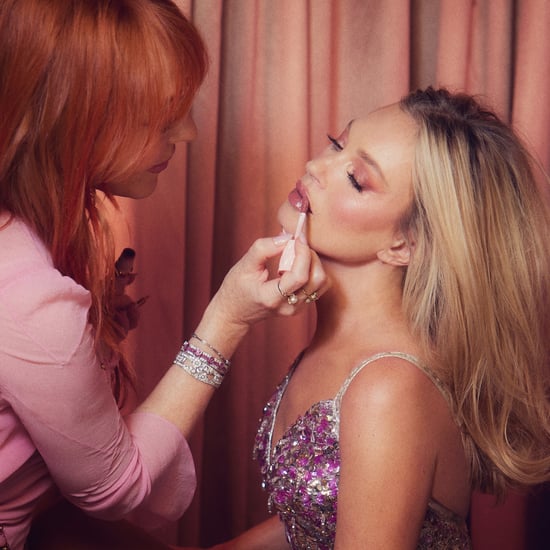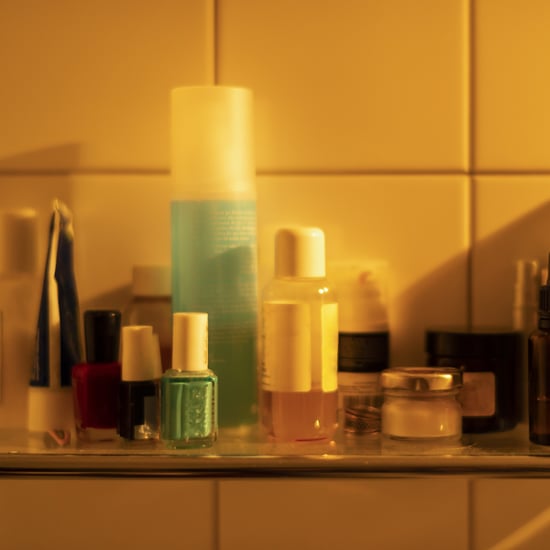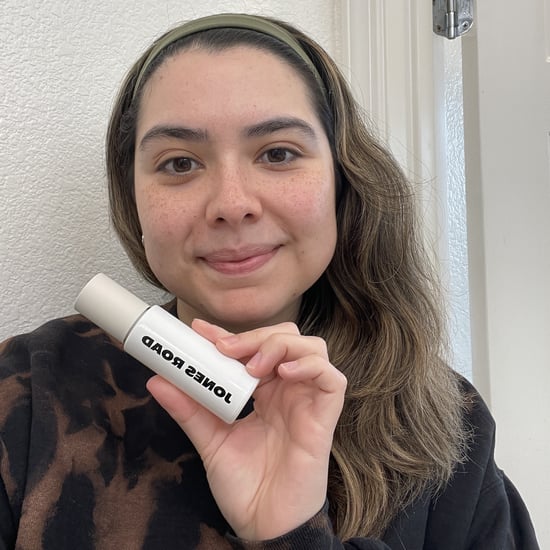Martha Stewart's Skin Tips, According to Her Dermatologist
Finally: Martha Stewart's Dermatologist Shares His Top Skin-Care Tips

Image Source: Getty / Arnold Turner / Romain Maurice / Stringer
Earlier this month, Martha Stewart made history by gracing the cover of Sports Illustrated's latest Swimsuit Issue, making her the magazine's oldest cover star at 81. The images of Stewart lounging in the sand were met with endless praise, followed by the question: what the hell is the secret to her amazing skin?
In an interview with Variety shortly after the cover's debut, the star made it clear that, despite what many people speculate, she's never had plastic surgery and what she has done by way of cosmetic procedures isn't much. It's aspirational, to say the least, but we want to know more.
There's no one correct answer for any skin-care goal or concern, but if there's anyone we trust to share some general guidelines to live by, it's one of Stewart's dermatologists, Dhaval G. Bhanusali, MD, FAAD (FYI, Stewart's other dermatologist is Dan Belkin, MD). As a celebrity dermatologist, Dr. Bhanusali's list of clients includes not only Stewart but also Hailey Bieber, and he serves on the medical advisory board for Rhode.
Ahead, he shares some of his secrets to looking good now — and decades from now.
Tip 1: Lifestyle Matters
Before we dive into the skin-care dos and don'ts, Dr. Bhanusali wants to make one thing clear: it's not just skin deep. "I have to always get the elephant out of the room with somebody like Martha: she's literally the healthiest human being I've ever met," Dr. Bhanusali tells POPSUGAR. "She grows her food on her farm, she gets up every morning and has the best green juice on Earth. I've had it before — it's incredible."
He's a firm believer that overall health is closely linked to skin health. But that's not all — Stewart is also happy. "That inner glow — I know it sounds super cliché, but it's honest, and you see it with people all the time."
Tip 2: Consistency Is Key
Consistency matters — in fitness, in diet, and in your skin's overall health. If you want to stay on top of things and have the best skin of your life, Dr. Bhanusali recommends getting into a regimented schedule. This goes for your skin-care routine, but also extras. "If you're going to do an [annual] laser, which I always recommend after the age of 30, get it in your calendar and don't stray too far, too fast away from it," he says. He recommends you set it and forget it — just like your six-month dental cleaning or yearly physical. "We want to keep it steady."
Without going into the specifics of Stewart's health, Dr. Bhanusali can confirm she's regimented. "She knows exactly what she wants to do, and everything in her life is very much structured," he says. "I think that's why she's probably looked the same for 50-plus years now."
Tip 3: Minimalist Approaches Work
Dr. Bhanusali lives by the philosophy that less is more. "I like little subtle movements," he says. He's referring to tiny cosmetic tweaks that can make all the difference in the long run. "We always start with the noninvasive, lowest-hanging fruit, and then we work our way up as necessary." A lot of aesthetics is subjective, but he stands by this: "I don't like making people look different; I don't like making people look like something they're not; I like to maintain."
Tip 4: Retinol Reigns Supreme
Retinol is a holy-grail skin-care ingredient, and Dr. Bhanusali thinks everyone should be on it (as long as your skin can tolerate it, of course). "A lot of people really sleep on retinoids and how much they can really do," he says. If he could go back in time and change one thing, he'd have started using retinol in college. If you have acne, it can be helpful to go on some form of it as early as your late teens, but especially by the time you're in your 20s, he recommends everyone use it for cellular turnover. "There's a lot of things that retinoids can help with."
Tip 5: Skip the Dupes
Don't get us wrong: we love discovering a good dupe and saving a little cash where we can as much as the next person (and so does Dr. Bhanusali), but he recommends keeping quality top of mind. "Most people don't realise, not all ingredients are made the same," he says. Using a vitamin C serum as an example, he explains that a cheaper formulation might only "last three minutes outside of the bottle, and the higher-quality ones, there's a reason why they're a bit more expensive. It's really hard to stabilise that ingredient." Quality matters.
Tip 6: After 30, Consider Lasers
If your 20s are for starting retinol, your 30s (and onward) are for incorporating lasers once a year. "I look at lasers as a fresh coat of paint, if you will," Dr. Bhanusali says. "Once or twice a year, give yourself a fresh layer of skin — it just sits well, it's tighter, it looks better, and it's healthier."
There are a variety of lasers out there that target different things. His personal favourites for the average person 30 and over include Halo and Fraxel (a staple in many dermatology offices). They create tiny micro holes in the skin, triggering cellular turnover and new tissue to grow. If you're younger, like in your 20s, a milder alternative is Clear + Brilliant, which is great for acne marks and discoloration.
Tip 7: Stop Overexfoliating
If there's one thing Dr. Bhanusali wished people would stop doing, it's overexfoliating, which leads to a compromised skin barrier. "People should really nurture their skin," he says. "[Most] people only need to exfoliate once, maybe twice a week, if that." It all goes back to overdoing it. Just remember, with skin, less is usually more.






